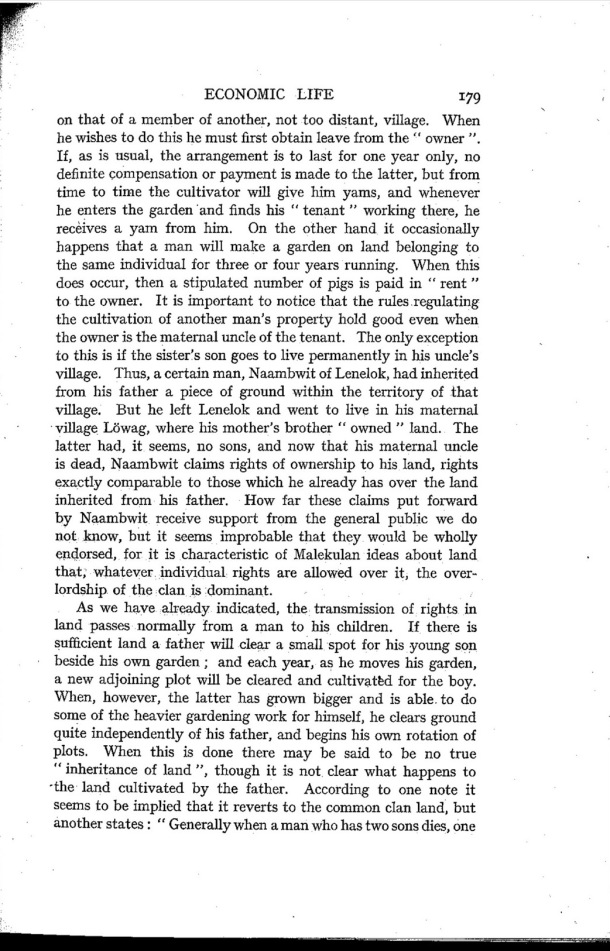|
|  [Note: this transcription was produced by an automatic OCR engine]
ECONOMIC LIFE 179
on that of a member of another, not too distant, village. When
he wishes to do this he must ï¬Årst obtain leave from the " owner ".
If, as is usual, the arrangement is to last for one year only, no
deï¬Ånite compensation or payment is made to the latter, but from
time to time the cultivator will give him yarns, and whenever
he enters the garden and ï¬Ånds his “ tenant " working there, he
receives a yam from him. On the other hand it occasionally
happens that a man will make a garden on land belonging to
the same individual for three or four years running. When this
does occur, then a stipulated number of pigs is paid in “ rent "
to the owner. It is important to notice that the rulesregulating
the cultivation of another man’s property hold good even when
the owner is the maternal uncle of the tenant. The only exception
to this is if the sister's son goes to live permanently in his unc1e’s
village. Thus, a certain man, N aambwit of Lenelok, had inherited
from his father a piece of ground within the territory of that
village. But he left Lenelok and went to live in his maternal
village Lï¬Åwag, where his mother's brother " owned “ land. The
latter had, it seems, no sons, and now that his maternal uncle
is dead, Naambwit claims rights of ownership to his land, rights
exactly comparable to those which he already has over the land
inherited from his father. How far these claims put forward
by Naambwit receive support from the general public we do
not know, but it seems improbable that they would be wholly
endorsed, for it is characteristic of Malekulan ideas about land
that, whatever individual rights are allowed over it, the over-
lordship of the clan is dominant.
As we have already indicated, the transmission of rights in
land passes normally from a man to his children. If there is
sufï¬Åcient land a father will clear a small spot for his -young son
beside his own garden ; and each year, as he moves his garden,
a new adjoining plot will be cleared and cultivated for the boy.
When, however, the latter has grown bigger and is able.to do
some of the heavier gardening work for himself, he clears ground
quite independently of his father, and begins his own rotation of
plots. When this is done there may be said to be no true
“ inheritance of land â€ù, though it is not clear what happens to
the land cultivated by the father. According to one note it
seems to be implied that it reverts to the common clan land, but
another states : “ Generally when a man who has two sons dies, one
|